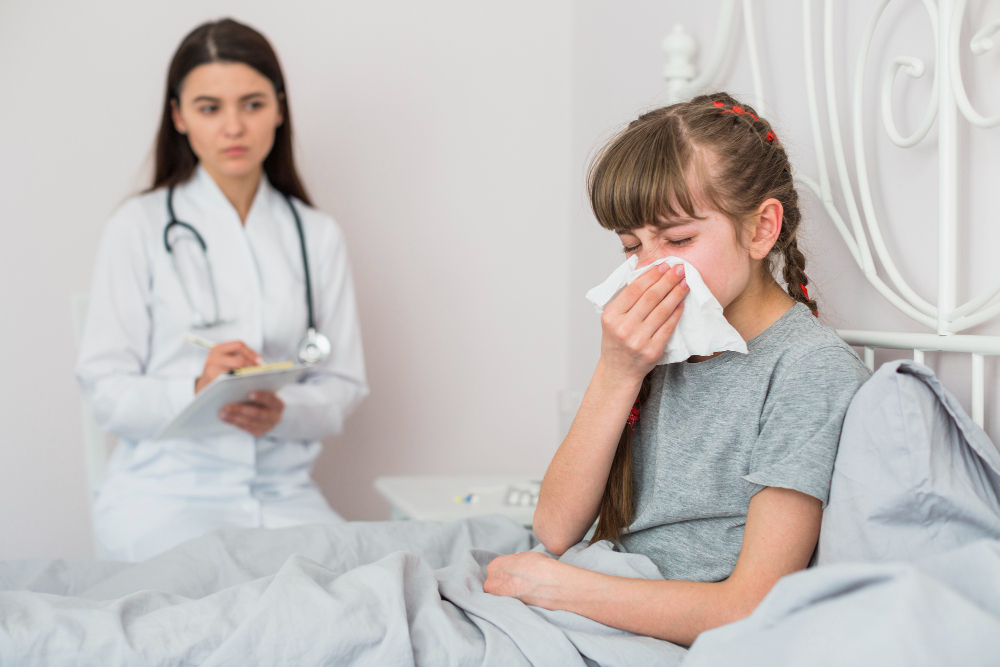Flu in children is a common illness caused by the influenza virus. It spreads easily, especially during the colder months. Because children can get very sick from the flu, it is important for parents and caregivers to know how to spot, treat, and prevent it. Early care can help your child recover faster and avoid serious problems.
What is Flu in Children?
The flu, or influenza, is a viral infection that affects the nose, throat, and sometimes the lungs. In children, the flu can cause mild to severe illness. Sometimes, it can even lead to serious health problems like pneumonia. Unlike a common cold, the flu often comes on suddenly and can make children feel very unwell.
Common Symptoms of Flu in Children
Flu symptoms in children can appear quickly. While some signs are mild, others may be more severe. Knowing these symptoms helps parents act fast. Look for:
Sometimes, children may not have all these symptoms. However, if your child seems very sick, it is best to seek help.
Causes and Risk Factors
The flu is caused by the influenza virus. It spreads through droplets when someone coughs, sneezes, or talks. Children can catch the flu by touching surfaces with the virus and then touching their mouth, nose, or eyes. Because children often play close together, the flu can spread quickly in schools and daycare centers.
Some children have a higher risk of getting very sick from the flu. These include:
According to the CDC, young children are more likely to have serious flu complications.
How is Flu Diagnosed in Children?
Doctors often diagnose the flu based on your child’s symptoms and a physical exam. Sometimes, they may use a quick test by swabbing your child’s nose or throat. This test can show if your child has the flu virus. However, not all children need this test. If your child has typical flu symptoms during flu season, a doctor may start treatment right away.
Treatment Options for Children with Flu
Treating flu in kids focuses on helping them feel better and preventing problems. Most children recover at home with rest and fluids. However, some may need medicine. Here are common treatment steps:
Always follow your doctor’s advice. If your child has trouble breathing, chest pain, or seems very sleepy, seek medical care right away.
Prevention Tips for Parents
Preventing flu in children is important for their health and the health of others. Here are some tips to help keep your child safe:
The CDC and WHO both recommend yearly flu shots for children over 6 months old.
When to See a Doctor
Most children with the flu get better at home. However, you should call your doctor if your child:
Early care can prevent serious problems. If you are unsure, it is always better to ask your doctor.
Call-to-Action: If your child shows signs of the flu, consult your pediatrician for the best care and advice tailored to your child’s needs.
